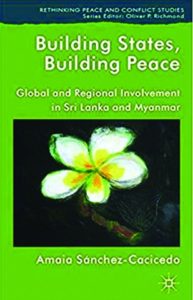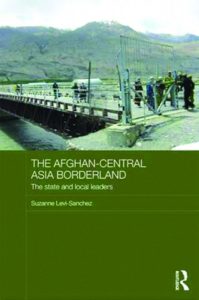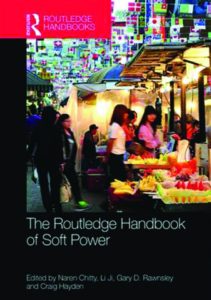

The CIA and the Congress for Cultural Freedom in the Early Cold War: The Limits of Making Common Cause
Sarah Miller Harris
Routledge (2016)
Rs12,974
This book questions the conventional wisdom about one of the most controversial episodes in the Cold War, and tells the story of the CIA’s backing of the Congress for Cultural Freedom.
For nearly two decades during the early Cold War, the CIA secretly sponsored some of the world’s most feted writers, philosophers, and scientists as part of a campaign to prevent Communism from regaining a foothold in Western Europe and from spreading to Asia. By backing the Congress for Cultural Freedom, the CIA subsidized dozens of prominent magazines, global congresses, annual seminars, and artistic festivals. When this operation (QKOPERA) became public in 1967, it ignited one of the most damaging scandals in CIA history. Ever since then, many accounts have argued that the CIA manipulated a generation of intellectuals into lending their names to pro-American, anti-Communist ideas. Others have suggested a more nuanced picture of the relationship between the Congress and the CIA, with intellectuals sometimes resisting the CIA’s bidding. Very few accounts, however, have examined the man who held the Congress together: Michael Josselson, the Congress’s indispensable manager?and, secretly, a long time CIA agent. This book fills that gap. Using a wealth of archival research and interviews with many of the figures associated with the Congress, this book sheds new light on how the Congress came into existence and functioned, both as a magnet for prominent intellectuals and as a CIA operation.
This book will be of much interest to students of the CIA, Cold War History, intelligence studies, US foreign policy and International Relations in general.
Sarah Miller Harris is a lawyer and has a PhD in International Relations from the University of Cambridge, UK.

Building States, Building Peace: Global and Regional Involvement in Sri Lanka and Myanmar
Dr Amaia Sánchez-Cacicedo
Palgrave Macmillan (2014)
Rs9,370
Uniquely focusing on the regional component of peacebuilding, this book provides an in-depth empirical analysis of peace processes in Sri Lanka and Myanmar. Sánchez-Cacicedo argues that though identified as ‘global’ forms of peacebuilding and involvement, they in fact lack the necessary legitimacy at local and regional levels, critiquing liberal peacebuilding approaches and international interventions in state building processes.
The book explores the lack of consensus between non-regional and regional actors involved in the 2002 peace process and its implications in Sri Lanka, and the similar situation in Myanmar, exploring the driving forces of external involvement in the country’s statebuilding process. Both case studies provide a rich insight into the regional actors of Asia and the relationship between China and India with its neighbours.
Building States, Building Peace highlights how the regional can prevail over the global structure, reconfiguring our views on the optimal ways in which to achieve peace.
Amaia Sánchez-Cacicedo is a scholar in the field of peacebuilding, international intervention and statebuilding, with a regional focus on Asia. She has conducted research on the evolution and internationalization of ethno-political conflicts, with a particular interest in Sri Lanka and Myanmar. She is developing a growing research agenda in the field of diaspora and transnational studies. Amaia holds a BSc in International Business Administration from the Universidad Pontificia de Comillas in Madrid, an MSc in International Affairs from Georgetown University and a PhD from the School of Oriental & African Studies (SOAS), University of London. She is currently a part-time lecturer at the International University in Geneva and has previously worked for several local NGOs in India, and for the UNHCR in Costa Rica, Kenya and Sri Lanka.

The Afghan-Central Asia Borderland: The State and Local Leaders
Suzanne Levi-Sanchez
Routledge (2016)
Rs13,695
Based on extensive, long-term fieldwork in the borderlands of Afghan and Tajik Badakhshan, this book explores the importance of local leaders and local identity groups for the stability of a state’s borders, and ultimately for the stability of the state itself. It shows how the implantation of formal institutional structures at the border, a process supported by United Nations and other international bodies, can be counterproductive in that it may marginalise local leaders and alienate the local population, thereby increasing overall instability. The study considers how, in this particular borderland where trafficking of illegal drugs, weapons and people is rampant, corrupt customs and border personnel, and imperfect new institutional arrangements, contributed to a complex mix of oppression, hidden protest and subtle resistance, which benefitted illicit traders and hindered much needed humanitarian work. The book relates developments in this region to borderlands elsewhere, especially new borders in the former Soviet bloc, and argues that local leaders and organisations should be given semi-autonomy in coordination with state border forces in order to increase stability and the acceptance of the state.
Suzanne Levi-Sanchez is a Postdoctoral Researcher at Rutgers University, USA.

The Routledge Handbook of Soft Power
Edited by Naren Chitty, Li Ji, Gary D. Rawnsley, Craig Hayden,
Routledge (2017), Rs21,624
The Routledge Handbook of Soft Power is the first volume to offer a comprehensive and detailed picture of soft power and associated forms of public diplomacy. The terms soft power and public diplomacy have enormous currency in media and policy discourse, yet despite all the attention the terms remain conceptually ambiguous for analysts of international influence. The consequence is that the terms have survived as powerful, yet criticized, frames for influence.
Divided into two main parts, Part I outlines theoretical problems, methodological questions, the cultural imperative and the technological turn within the study of soft power and Part II focuses on bringing the theory into practice through detailed discussion of key case studies from across the Americas, Europe, the Middle East, Africa and Asia.
This innovative handbook provides a definitive resource for students and scholars seeking to familiarize themselves with cutting-edge debates and future research on soft power and will be of interest to those studying and researching in areas such as international relations, public diplomacy and international communication.
Naren Chitty is Inaugural Director of the Soft Power Analysis and Resource Centre and Foundation Chair in International Communication at Macquarie University, Australia.
Li Ji is a Lecturer in International Communication and a Researcher at the Soft Power Analysis and Resource Centre (SPARC) at Macquarie University, Australia.
Gary D. Rawnsley is Professor of Public Diplomacy in the Department of International Politics at Aberystwyth University, UK.
Craig Hayden is Chair of the Diplomatic Mastery Program at the Foreign Service Institute, US Department of State, USA.

Ballots, Bullets, and Bargains: American Foreign Policy and Presidential Elections
Michael H. Armacost
Columbia University Press (2015)
Rs3,926
Drawing on twenty-four years of experience in government, Michael H. Armacost explores how the contours of the U.S. presidential election system influence the content and conduct of American foreign policy. He examines how the nomination battle impels candidates to express deference to the foreign policy DNA of their party and may force an incumbent to make wholesale policy adjustments to fend off an intra-party challenge for the nomination. He describes the way reelection campaigns can prod a chief executive to fix long-neglected problems, kick intractable policy dilemmas down the road, settle for modest course corrections, or scapegoat others for policies gone awry.
Armacost begins his book with the quest for the presidential nomination and then moves through the general election campaign, the ten-week transition period between Election Day and Inauguration Day, and the early months of a new administration. He notes that campaigns rarely illuminate the tough foreign policy choices that the leader of the nation must make, and he offers rare insight into the challenge of aligning the roles of an outgoing incumbent (who performs official duties despite ebbing power) and the incoming successor (who has no official role but possesses a fresh political mandate). He pays particular attention to the pressure for new presidents to act boldly abroad in the early months of his tenure, even before a national security team is in place, decision-making procedures are set, or policy priorities are firmly established. He concludes with an appraisal of the virtues and liabilities of the system, including suggestions for modestly adjusting some of its features while preserving its distinct character.
Michael H. Armacost is the Shorenstein Distinguished Fellow at Stanford University’s Walter H. Shorenstein Asia-Pacific Research Center. In addition to having held senior positions at the Defense Department and on the National Security Council staff, he served as undersecretary of state for political affairs and as U.S. ambassador to the Philippines and Japan. He was president of the Brookings Institution from 1995 to 2002. He has received the President’s Distinguished Service Award, the Defense Department’s Distinguished Civilian Service Award, the Secretary of State’s Distinguished Service Award, and the Japanese government’s Grand Cordon of the Order of the Rising Sun. He is the author of Friends or Rivals? The Insider’s Account of U.S.–Japan Relations and The Politics of Weapons Innovation: The Thor-Jupiter Controversy. He also coedited, with Daniel Okimoto, The Future of America’s Alliances in Northeast Asia.

